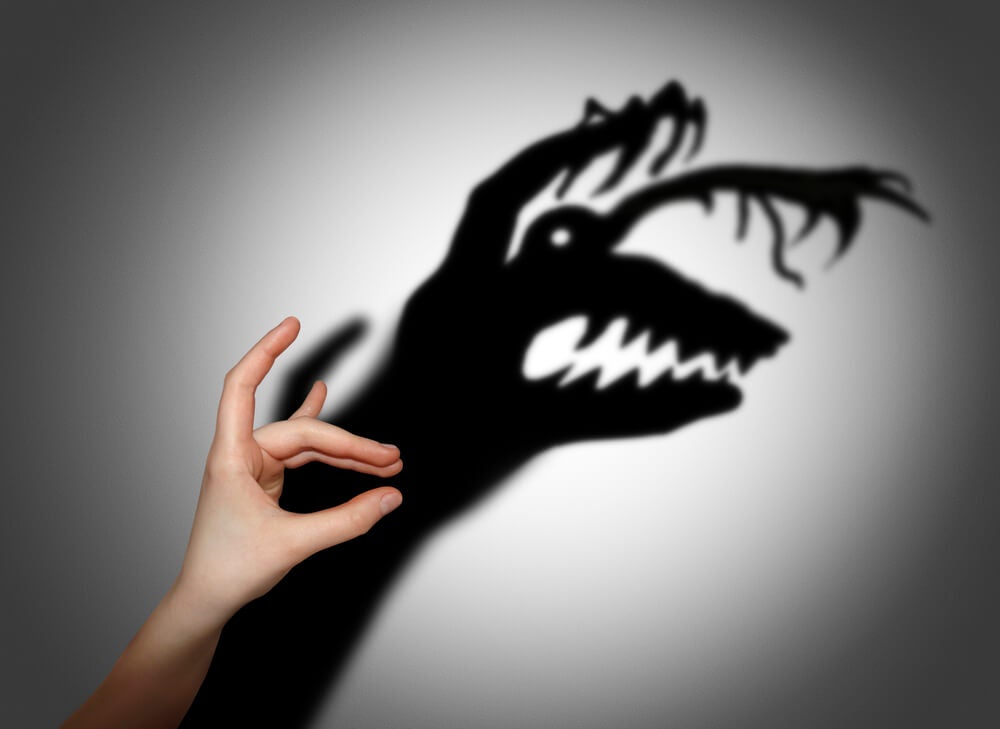For Buddhism, dealing with fear is an inner work that revolves around perception, in fact, they define fear as a mistake of perception, which translates into fantastic and horrible images that end up invading our minds. Danger is not outside, but within us.
Similarly, Buddhists say that fear finds more fertile territory among those who have a loveless heart. Resentment, envy, and selfishness are harmful ways to connect with others. Forms that contain a spark of combat, and whoever is at war must be afraid.
“Better than a thousand empty words, a word that brings peace. -Bouddha-
In general, Buddhists emphasize that the best way to deal with fear is to focus fully on the present moment and compassion, are factors that lead us to be and feel stronger and therefore less afraid.
Buddhists emphasize that the fundamental essence of fear is our rejection of suffering. They also claim that pain is inevitable, while suffering is optional. The first is the understanding of fear; the second, in the way of assuming it.
The fear of suffering arises from our rejection of unpleasant sensations arising from loss, conflict, the lack of coincidence between our desires and reality, on the other hand, it is not obligatory to suffer for all this, suffering is only one of the answers. that we have at our fingertips.
We have prejudices about the harm that pain will hurt us, but that’s not necessarily the case. To cope with fear, you also need to know how to manage pain. It loses a lot of strength when we accept it and let it be, and even more so when we seek and find the learning it gives us.
One way or another, fear is articulated with the past or the future, with the past, when we get stuck in experiences that have frightened us and left a deep mark that we continue to avoid, we are afraid that the same will happen to it. us again.
Something similar happens with the future. Sometimes it scares us because we imagine or assume it will bring difficulties or painful situations, we feel small before tomorrow and it scares us.
Thus, Buddhism insists that one way to manage fear is to place ourselves in the present, here and now. Mindfulness prevents our minds from being filled with these fantasies that can only feed fears unnecessarily at all times.
Peace of mind and spiritual is at the opposite pole of attachment, for Westerners it is very difficult to understand, because all our logic revolves around having it, this refers not only to material goods, but also to emotional or spiritual goods. about that, love or peace, etc.
Buddhism is a philosophy that seeks to stop having, that is to let go, to understand that nothing belongs to us, not even our own life, everything that enters our lives and, in fact, all that we are, is just a passing reality. .
When this is not understood, attachment arises and, with it, the fear of loss. This is one of the strongest fears because it becomes a vicious circle. The more attachment there is, the more fear there is; and the more afraid there is, the more attachment there is. Letting it flow and accepting that everything is transient makes us less afraid.
For Buddhism each of us is our own teacher and the reason for our mistakes is to learn, when things are not assumed in this way, the mind begins to fill with fear and anguish, it is as if there is an unpaid debt that is pressing us.
When you overlook a mistake and you can’t learn from it, the situation that led to that mistake tends to repeat itself, that’s when you feel a kind of lack of control over your own life, this, of course, brings out fears and feelings. weakness in us.
All these Buddhist principles to deal with fear are complex exercises, it is necessary to practice them patiently and continuously, they largely face many Western norms, so they are not easy to assimilate, however, if we are in a state of frequent fear, it may be good to analyze them carefully.

